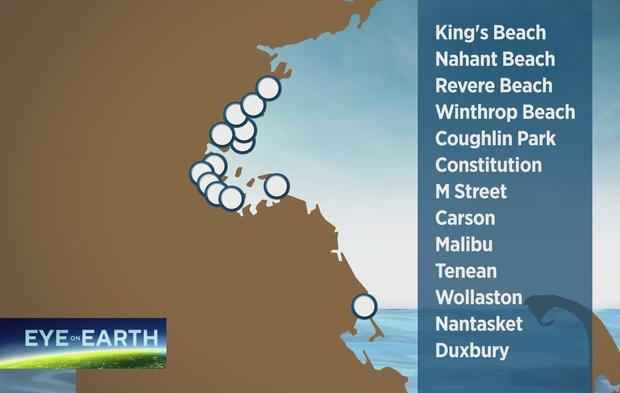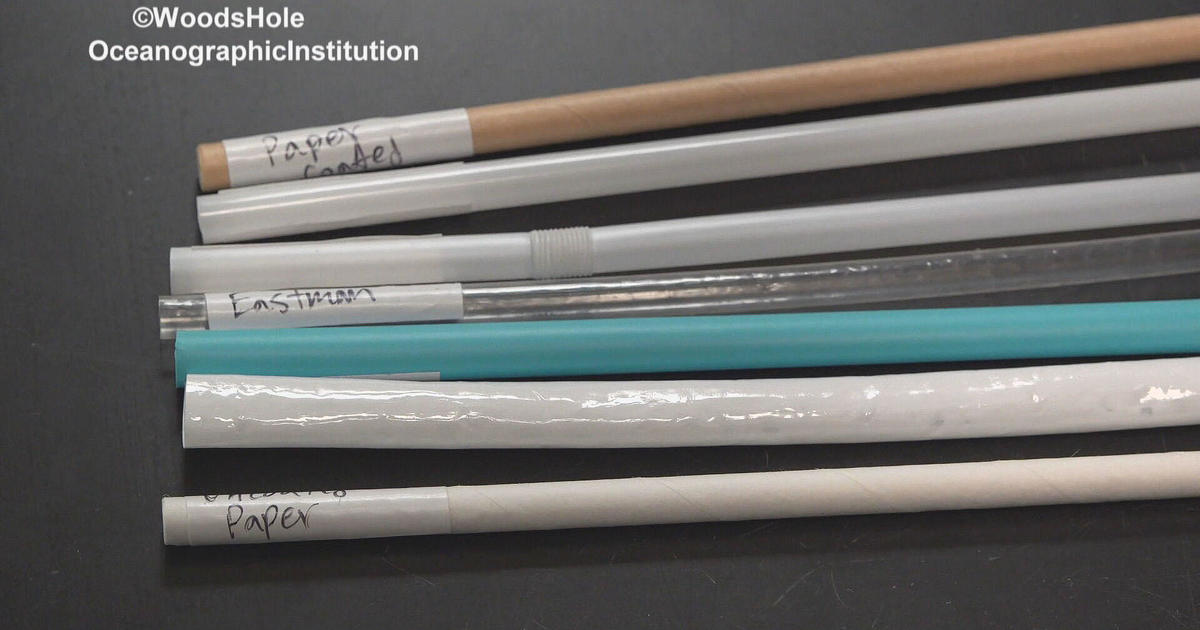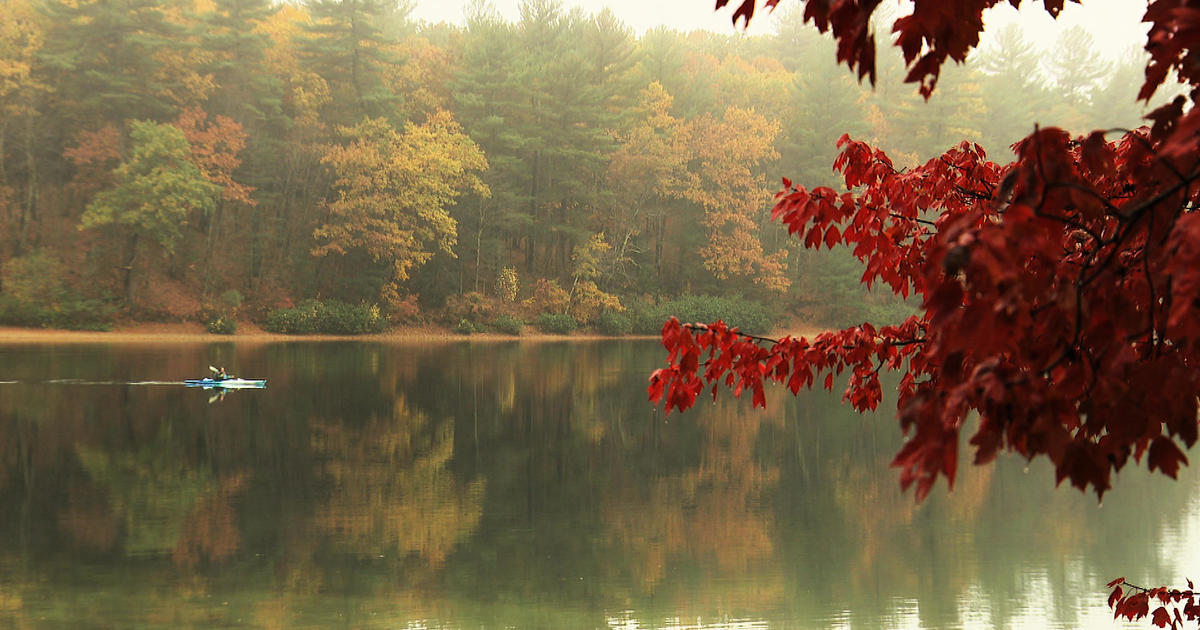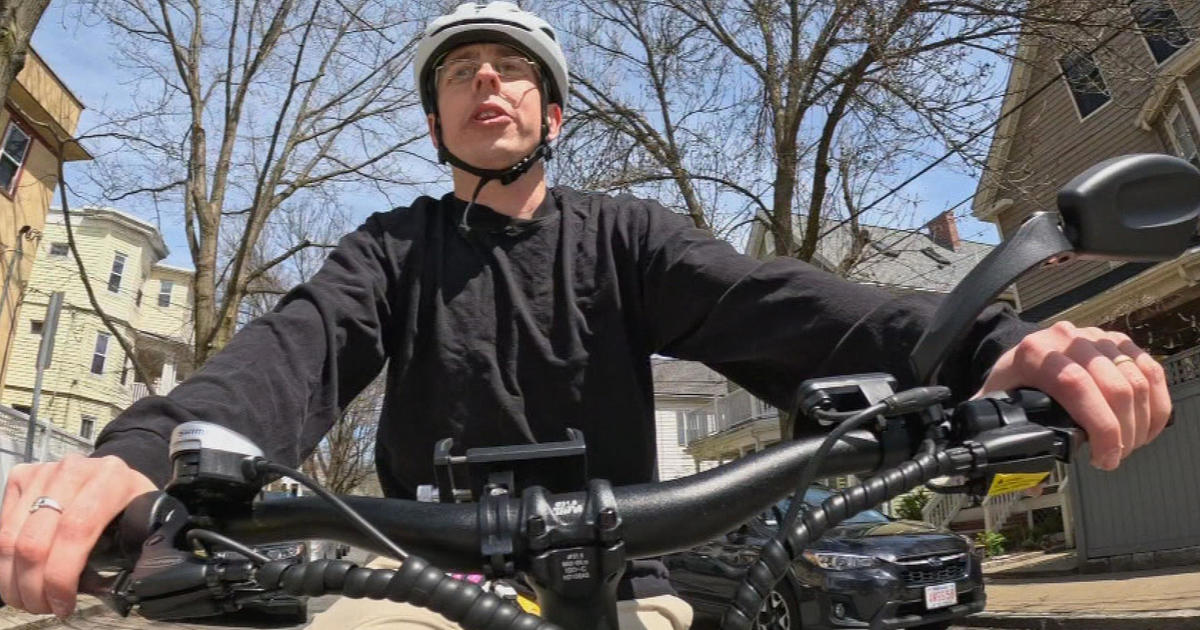Stone Living Lab Project Is Helping Boston Find Nature-Based Solutions To Climate Change
BOSTON (CBS) -- Warming temperatures, rising seas, and more extreme weather events are all signs of our warming world.
"Climate change is here. We can't really stop it right now, but there are a lot of ways we can learn to live with it, and hopefully roll back some of the effects," says Rebecca Shoer, the Engagement Manager with the Stone Living Lab.
The Stone Living Lab is a collaborative partnership of local organizations, including the City of Boston, UMass Boston School for the Environment, Boston Harbor Now, the National Parks of Boston, the Massachusetts Department of Conservation and Recreation, and the James M. and Cathleen D. Stone Foundation. They have come together to help Boston find nature-based solutions to adjust to climate change by using the Boston Harbor and Harbor islands.
"It's a really unique laboratory. We call it a living laboratory. There's not just a lab in the corner of the building where we have researchers working in secret. We're using the entire harbor as our laboratory," Shoer tells WBZ-TV.
What is truly unique about this lab is the researchers aren't just scientists.
"We need educators, we need scientists, we need community members, we need artists, we need all kinds of folks because we need some really creative solutions, and we need them pretty quickly," Shoer exclaims.
Boston's sea level is expected to rise over two feet over the next 50 years, and there are a number of urban beaches around the city that have already seen changes.
"So we are just starting to roll out some programs. One of our first opportunities is our community science project called beach profiling," Shoer says.
Community science is a great way to get the public involved in collecting valuable data, like they will be at Carson Beach this summer. That is just one of the sites the Stone Living Lab will use for their Beach profiling project.
"Community Science is really just that. It's the community doing authentic science," says Professor Bob Chen, the Interim Dean for the School for the Environment at UMass Boston and Co-Principal Investigator for the Stone Living Lab Project.
Trained volunteers will measure the slope of the beaches, the impact from storms, seasonal patterns, and eventually, the long term changes.
"It's not going to be one single solution. It will be a whole host of solutions. Scientists have a very singular perspective. Engineers have one perspective on how to solve these problems, but the people that live in the world have many other ideas that are also equally valid. And so, can we can harvest all of these different perspectives, learn together, so we can adapt the coastline," Chen explains.
The hope is that these solutions will help people better understand the changes at our coast and prepare for the future.
"Everyone, whether they realize it or not, has and will have an increasing relationship with climate change, and how do we smooth that relationship, how do we engage people on how they want that to be," Chen said.
To learn more about community science projects you can participate in or learn about the research that Stone Living Lab is doing, visit the Stone Living Lab's website.




